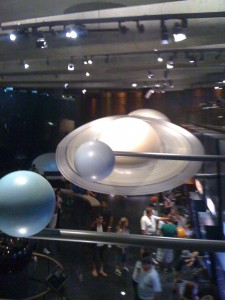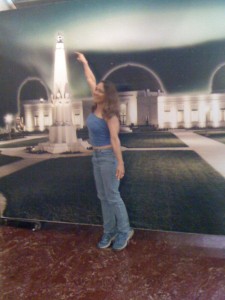Life imitates research: How cultural programs MAY detract from academics
 Yesterday, I was at Griffith Observatory with the world’s most spoiled 13-year-old. We were there because she is in a Summer Scholars program that is designed to provide academic enrichment for high-achieving girls. Unfortunately, not being as high-achieving as we might like, she got a B- on her latest test, and given that the teacher had offered extra credit to anyone who went to the observatory and came back with a star map, off we were. I presume there was some assumption that you would look around the observatory and not just pick up the map at the gift shop, eat in the cafe and head for home, which was the original plan of The Spoiled One, foiled by yours truly.
Yesterday, I was at Griffith Observatory with the world’s most spoiled 13-year-old. We were there because she is in a Summer Scholars program that is designed to provide academic enrichment for high-achieving girls. Unfortunately, not being as high-achieving as we might like, she got a B- on her latest test, and given that the teacher had offered extra credit to anyone who went to the observatory and came back with a star map, off we were. I presume there was some assumption that you would look around the observatory and not just pick up the map at the gift shop, eat in the cafe and head for home, which was the original plan of The Spoiled One, foiled by yours truly.
So, we walked around the observatory for a while, stood on the different scales to see our weight on different planets, discussed differences in gravitational pull, Galileo, Kepler, Michelangelo and Da Vinci. I didn’t know who painted the Mona Lisa but I did know it wasn’t Michelangelo. She thought it was Da Vinci, looked it up on the wikipedia app on my iPhone and sure enough, she was right. I knew that Galileo was the one who had the correct idea about the earth rotating around the sun. I did not know what Kepler was incorrect about but I vaguely remembered he was important for some reason, so I figured he must have had some views that turned out to be correct (it’s been nearly 40 years since I took high school science, give me a break). When we got home, there was a discussion with the resident rocket scientist on Kepler’s laws, including his disproven third law.
“I knew it!”
She was profoundly satisfied to have been correct twice in one afternoon.
This summer, my daughter is studying about plate tectonics, constellations, the Renaissance scientists and artists. This morning, she was discussing with her father the chemical reaction that occurs when a sparkler, uh, sparkles , and asking for the correct spelling of the word, “oxidizer”. Don’t get me wrong, she complains BITTERLY about not spending every waking moment of her summer at the beach and the mall. Just last night, she got a new computer game, “Sims go to the moon for pizza” or something like that, because she had been doing so much extra work.
BUT …. I contrasted this with some of the cultural programs I have evaluated. In some of these, the students went camping in the woods for a week or two. Truly a fun thing to do. They watched movies about famous Native Americans or about important events in Native American history. They had lessons in their native language.
I’m not saying none of that is of value. When I was young, my mom (who has a Botany minor), would go camping with us and tell us things like “That flower is called Baby’s Breath. They use it in bouquets at weddings a lot. This is milkweed. You’ll find Monarch butterflies around it.”
Did learning (and forgetting) about Kepler help me any more in my life than knowing about milkweed? Obviously not. Although since I haven’t been camping in over 30 years, it probably didn’t help me any less, either.
Actually, to be honest, information like what my daughter is learning did help me, because it was on standardized tests I took that helped me to get scholarships and admitted to college. The more programs for kids, like the Summer Scholars program, teach information specific to the test, the better they’ll do on the tests. Duh! This isn’t one of those rants about how bad “teaching to the test” is, either. Lately, she’s asked me what the word “enigmatic” meant and why people say Mona Lisa had an enigmatic smile, and did I really think Michelangelo was gay because he sculpted a lot of naked men, because she read that on some website. We’ve gone out to the park, laid in the grass at 10:30 pm, looked at the stars and talked about constellations and light pollution. She’s doing more than memorizing facts to regurgitate.
I’m not saying cultural programs are bad, either. In particular, I remember an outstanding program done on the Spirit Lake Nation several years ago where the students spent the summer testing water quality at the lake, learning how to analyze water samples, measuring the water level and graphing trends over years. You can have programs that both address issues of historical and traditional value to your culture – like caring for the environment, how a treaty that sets the lake as a reservation boundary can have significant implications – and be a really kick-ass educational program at the same time. What I AM saying, though, is that programs like that don’t happen by accident and that it requires some creativity, an in-depth knowledge of the content areas like science and history, and most importantly, a deliberate effort to blend students’ culture into the curriculum, rather than replacing academic subjects already being taught.
Because, as my daughter is constantly complaining, there are only so many days in the summer.
